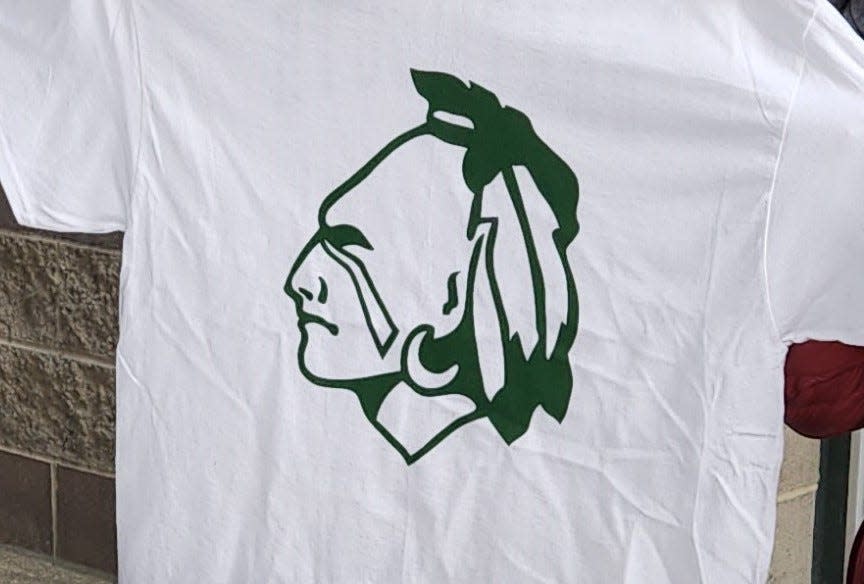Opinion: Not all Native American mascots have to go
“Are Native American-themed mascots harmful?” in the May 20, 2022, online edition reported on the disagreement over whether Dartmouth High should retire its “Indian” name and logo. It should not.
The Wampanoag tribe has a proud heritage and the school’s Indianhead logo is far from derogatory. Indeed, it was redesigned by a member of the Wampanoag Tribe to replace an inaccurate Plains Indian caricature and instead properly portray an Eastern Woodland Indian.
This scenario has now played out hundreds of times across the country. High schools historically have been quick to retire Native American mascots; as one superintendent told me, with a limited budget and a school system to run, he simply couldn't afford to spend more time debating the issue.

Colleges often split between appeasing a faculty/student faction and alienating the alumni/donors who cherish the school’s traditions and fund its endowment. But starting with Dartmouth College and Stanford retiring their “Indian” monikers in the 1970s, many colleges have changed. And only recently, with the Washington Commanders — formerly the Redskins (derogatory name, dignified logo) — and the Cleveland Guardians — formerly the Indians (acceptable name, derogatory logo) — have any professional teams seen a need to change.
While Washington’s “Redskins" and Cleveland’s “Chief Wahoo” had to go, not all "Indian" mascots deserve the same treatment. Many are historically accurate and respect Native Americans, yet have unfairly been lumped together with derogatory names such as “Redskins” and “Scalpers.”
Changing times: Barnstable School Committee drops Red Raider mascot
Here on the Cape, Barnstable High School recently retired the “Red Raiders,” and 14 years ago the Nauset Regional Warriors dropped their dignified Indianhead logo. Both school board decisions were close calls; Barnstable with three voting in favor and two abstentions, and Nauset splitting five in favor, three opposed and one abstention.
Barnstable had already dropped its Indian profile logo years before and took pains to add the words “Pride, Respect, Honor” to its feathered “B” logo, but that wasn’t considered enough. Nauset’s logo, like Dartmouth’s, was designed by a Wampanoag Tribe member, and the Nauset tribe, which fought off the Pilgrims 400 years ago at First Encounter Beach and Samuel de Champlain before them in Nauset Marsh, in fact, were “warriors.”
Oral History: Indigenous linguists use endangered language to connect Wampanoag members to their roots
Dartmouth High shouldn’t make the same mistake. New England is replete with Native American history. A short drive along our roads —with names like Massasoit and Aspinet — demonstrates that.
The town of Dartmouth played a significant role in King Philip’s war; indeed, the Russell Garrison was designated a National Historic Landmark in 2018. Despite recent efforts by the present-day Wampanoag and other tribes, Native American language and customs have mostly vanished in this country, but sports, like streets, are a viable and visible way to honor and remind us of who first lived here. That’s an especially appropriate role for our schools, and Dartmouth High is to be commended for working on including Indigenous education in its curriculum.
Rip currents:: What you need to know for safer swimming on Cape Cod
Dartmouth’s logo is dignified and was designed by a Wampanoag. That accurate depiction should not be placed in the same category as Cleveland’s grinning “Chief Wahoo.” Far from being a derogatory cartoon, the Dartmouth logo is reminiscent of the Indian on the old Buffalo nickel — and coins are where we honor our presidents.
Dartmouth can and should draw the line between symbols that ridicule and those that respect Native Americans. As 22 Wampanoag Tribe members associated with the Dartmouth School District have stated, “the symbol is not disrespectful, disparaging or derogatory in any manner.” Shouldn’t they be allowed the last say?
Jay Coleman, Eastham
This article originally appeared on Cape Cod Times: Cape Cod: Native American mascots, logos can acknowledge our history

